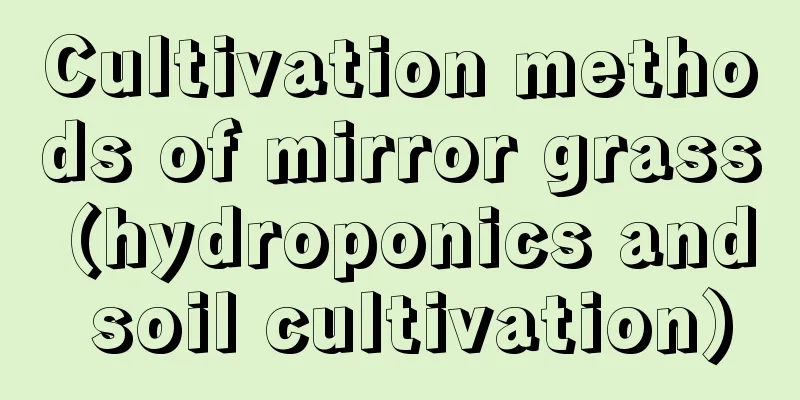How and when to plant basil

Planting time and month of PerillaPerilla can be propagated by sowing, which is divided into direct sowing and seedling transplanting. Generally speaking, perilla is sown in spring. Due to the large temperature difference between the north and the south, the sowing time is different. It is mid-March in the south and April in the north. Because the weather is not very warm at this time, the film should be covered after sowing. Perilla is suitable for sowing in spring from March to April. The germination of spring seeds is good. Sowing at this time can take advantage of the growth characteristics of the seeds themselves and allow the seeds to grow smoothly under natural conditions. After sowing in spring, seedlings will emerge in about two weeks. The growth speed is fast and the planting cost is low. How to grow basilPerilla adopts the method of one-time sowing and multiple harvesting. Generally, it can be harvested continuously for 2-3 years after one sowing, and 7 to 8 crops can be harvested a year. After planting for 2 to 3 years, the plants are prone to poor growth and should be replanted in selected locations. Continuous cropping is not allowed. 1. Fine land preparation. Perilla likes to grow in loose and fertile soil. Before sowing, the soil needs to be turned over and dried to reduce the occurrence of diseases and pests, and then sufficient base fertilizer is applied, mainly using decomposed farmyard manure and triple compound fertilizer. 2. Sow at the right time. The suitable temperature for perilla growth is 10-25 degrees. It can be planted all year round. It has good quality and strong adaptability. In summer, when the temperature is high, you can use a shade net to cover it for cooling. In winter, when the temperature is low, you can use a small arch shed to cover it for insulation. 3. Cultivate strong seedlings. Whether it is direct seeding or transplanting, perilla must be cultivated. Generally, the sowing amount is about 10.5 kg per mu, and the sowing should be uniform and precise. The bed width is 1.2 meters. Too wide is not conducive to management. The transplanting depth is 6 centimeters. The density should be dense rather than sparse. Water enough after planting. Loosen the soil and weed after survival. 4. Maintenance and management: During the growth period of perilla, the soil should be kept moist, thin fertilizer should be applied frequently, and drainage measures should be taken in the rainy season. Its common diseases include downy mildew, which can be sprayed with 500 times diluted 25% metalaxyl. The main insect pests are onion aphids and leaf miners, which can be sprayed with pesticides such as Yibianjing and Avermectin. |
>>: When is the best time to sow cauliflower?
Recommend
What are the cultivation methods and precautions of lavender?
Lavender Introduction Lavender belongs to the Lam...
How long does it take for sunflower cuttings to take root? Why do sunflower cuttings cause root rot?
1. How long does it take for cuttings to take roo...
Sweet pea planting time and method Sweet pea planting and management
Peas are semi-cold-resistant crops. They can surv...
Is it good to grow calamus at home?
1. Is it good to raise it at home? Acorus is an a...
What vegetables can be grown in August?
August is at the end of summer, and for vegetable...
What to do after the peony flowers fade
Strengthen water and fertilizer maintenance Peony...
How to grow potted bamboo to make it more vigorous?
The stems of bamboo are upright and the lines are...
Tomato pruning method
Tomatoes are planted over a large area, and pruni...
Spring foal breeding method
1. Cutting 1. Time: The time is not very restrict...
What is the best way to apply wood ash as fertilizer?
Wood ash is an ash fertilizer made from burning f...
What is arugula?
What is arugula? Arugula is an annual plant of th...
What to do if the leaves of golden bell turn yellow
1. Growth characteristics of golden bell flower T...
Management of Bougainvillea during flowering period, why is the flower color light
1. Management during flowering period 1. Watering...
How to grow potted plum blossoms well
How to cultivate plum blossom in potted plants 1....
Precautions for transplanting Chlorophytum comosum, methods and maintenance techniques for transplanting Chlorophytum comosum in spring and autumn
Before repotting, you must first prepare the flow...









